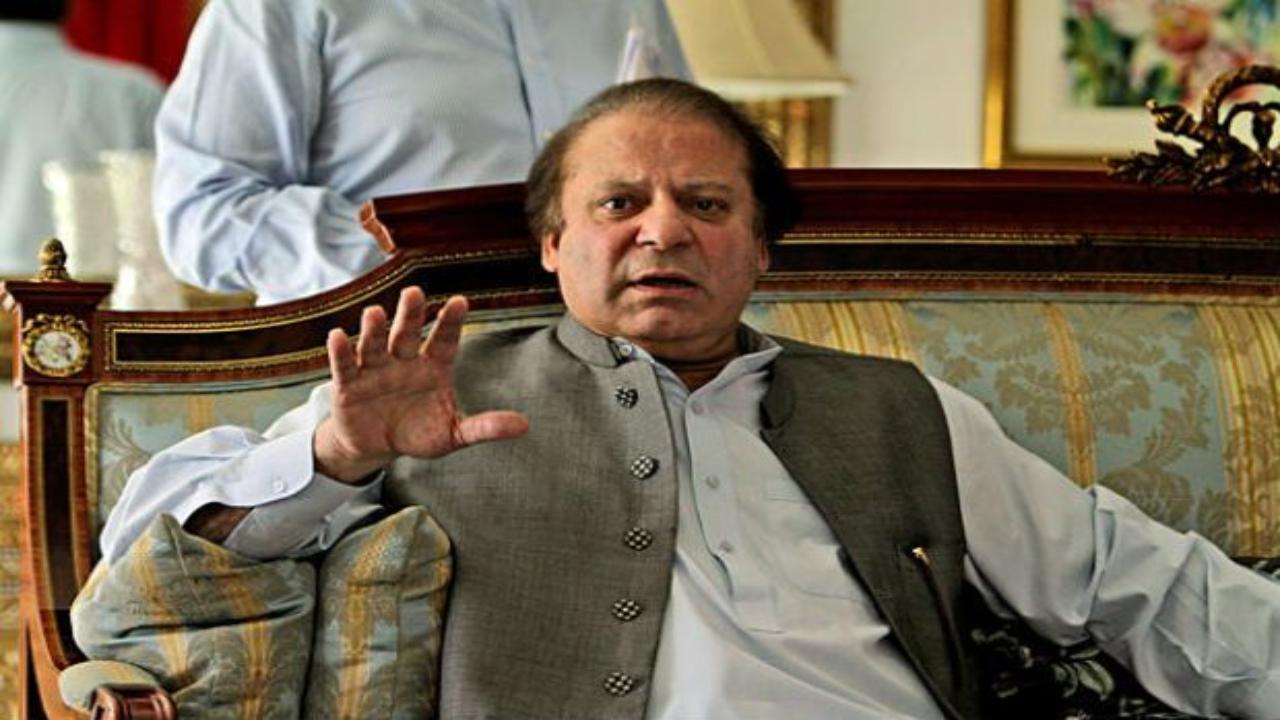Pakistan's anti-graft body is reopening at least four corruption cases against former prime minister Nawaz Sharif as he is scheduled to return to the country next month, ending four years of self-exile in the United Kingdom

File Photo/PTI
Pakistan's anti-graft body is reopening at least four corruption cases against former prime minister Nawaz Sharif as he is scheduled to return to the country next month, ending four years of self-exile in the United Kingdom, an official said Thursday.
ADVERTISEMENT
The 73-year-old Pakistan Muslim League-Nawaz (PML-N) supremo is scheduled to return to Pakistan from London on October 21 to lead the party's election campaign. Nawaz left the country in November 2019 on medical grounds after the Lahore High Court granted him bail for four weeks. He was serving a seven-year imprisonment in the Al-Azizia Mills corruption case at Kot Lakhpat Jail Lahore.
On arrival in Lahore, his party says he will address a rally at Minar-i-Pakistan where he will give a road map to steer the country out of the economic crisis, governance problems and other issues the country is facing today.
The National Accountability Bureau (NAB) in the light of a Supreme Court ruling which struck down amendments made to the accountability laws by the previous Pakistan Democratic Movement (PDM) government led by Nawaz's younger brother Shehbaz Sharif, is reopening the four pending probes against Nawaz.
The cases are related to illegal plots and land allotment, dubious transfer of shares of his sugar mills and Toshakhana (national treasury gifts).
"Nawaz Sharif being chief minister of Punjab province in 1986 had allotted plots in Lahore to several people by misusing his authority. He is accused of illegal construction of several kilometres of road to his house in Jati Umra Raiwind, Lahore, in 1998 when he was prime minister in violation of rules.
"The third case is related to the transfer of shares in 'illegal' manners in the Chaudhry Sugar Mills case which is owned by Nawaz Sharif and his family members. In this case, his daughter Maryam Nawaz is also accused of being a major beneficiary," an official privy to the development told PTI on Thursday.
Also read: Delhi HC grants parole to foreigner murder convict to appeal in Supreme Court
The fourth is related to the Toshakhana case in which he is accused of taking luxurious vehicles from the national treasury in violation of rules, he said.
Besides these cases, Nawaz will have to face the case related to his conviction.
Meanwhile, Nawaz's close aide and senior PML-N leader Mian Javed Latif said the party has stopped ¿demanding accountability of former army chief Gen Qamar Javed Bajwa and former ISI head Gen Faiz Hameed" for conspiring against Nawaz to topple his government in 2017.
"The PML-N doesn't want accountability of Gen Bajwa and Gen Hameed but only those characters and facilitators involved in May 9 events and mutiny against the head (Army Chief Gen Asim Munir) of the institution," he said.
Latif was referring to attacks on military installations following the arrest of Pakistan Tehreek-i-Insaf (PTI) chief Imran Khan in May.
On September 18, Nawaz demanded "strict accountability" of Gen Bajwa, Gen Hameed and chief justices "Asif Khosa and Saqib Nisar" while addressing the party's ticket holders in Lahore via video link from London.
He had hinted at trying them under treason charges if his party returned to power in the upcoming elections, scheduled early next year.
Nawaz's demand for strict accountability left many in the party in a precarious position as the leaders became wary of a possible backlash from the military establishment if he continued with such statements.
Sources told PTI that Nawaz backtracked from demanding accountability of army generals after a "strong message" was conveyed to him through his younger brother Shehbaz Sharif.
This story has been sourced from a third party syndicated feed, agencies. Mid-day accepts no responsibility or liability for its dependability, trustworthiness, reliability and data of the text. Mid-day management/mid-day.com reserves the sole right to alter, delete or remove (without notice) the content in its absolute discretion for any reason whatsoever.
 Subscribe today by clicking the link and stay updated with the latest news!" Click here!
Subscribe today by clicking the link and stay updated with the latest news!" Click here!







